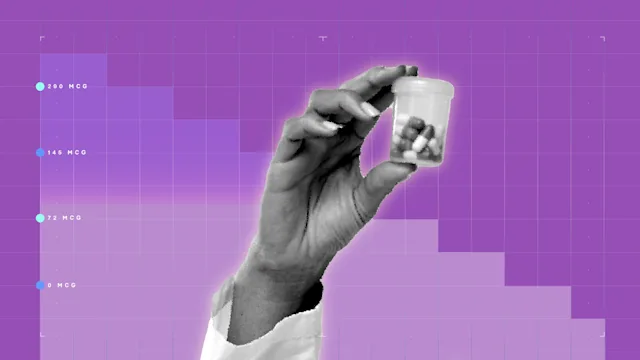Key takeaways:
Constipation is a medical condition that causes you to have fewer than three bowel movements per week.
Symptoms of constipation include dry, hard stools that are difficult to pass.
Constipation can be treated with over-the-counter (OTC) medications and home remedies like increasing fiber intake, drinking more fluids, and increasing physical activity.
With so many myths about being constipated and how to treat it, it can be hard to know where to turn for help. Fortunately, avoiding constipation and treating it can be easier than most people think. Read on to learn about why constipation happens — and what you can do to get your stools back to normal.
What is constipation?
Constipation is a medical condition that causes changes to your stool and your ability to go to the bathroom. Everyone’s stooling patterns are a little bit different. But if you have constipation, there’s a shift in what’s normal for you.
People’s experiences with constipation can differ. Some people may notice that they’re stooling less often than normal. Others may notice that they can still use the bathroom regularly but that their stools look different than usual — usually harder and cracked.
Most people experience a little of both, along with discomfort and straining. Some people also feel like they haven’t completely emptied their bowels even after having a bowel movement.
How do you know if you have constipation?
You can tell you have constipation by changes to your regular bowel movements. Some of the most common patterns people notice include:
Fewer bowel movements per week than normal
Harder or drier stools than normal (the Bristol Stool Chart can help you understand different types of stool)
Pain or straining while stooling
Feeling like you aren’t able to pass stool or get all your stool out
Another way to know if you have constipation is if you are having fewer than three bowel movements in a week. There is a wide range of “normal” for bowel movement frequency. But most people will pass stool at least three times per week. So, fewer than that means you could be constipated.
What are some causes of constipation?
Constipation can be caused by anything that makes the intestines move more slowly or causes stool to stay in the colon longer than usual. There are a surprising number of things that can cause constipation, including diet and exercise, medications, and medical conditions.
1. Diet and exercise habits
What you eat and drink can increase the risk of getting constipated. So can your activity level. Here are some everyday habits that can lead to constipation:
Not getting enough activity: The muscles around the colon are more active when you get more activity throughout the day. Muscles around the colon help move stool out. If they’re not moving, your stool sticks around in your colon, getting harder and drier and more difficult to pass.
Not drinking enough fluids: If you don’t drink enough fluids, your body tries to make up for it by sucking out as much water from your stool as possible so you can hold on to every drop. But this makes stool hard and dry, and more difficult to pass.
Not eating enough fiber: Fiber from fruits and vegetables makes stools bulkier and easier to pass. Not getting enough fiber can make your stools harder and drier too.
Holding it in: Overriding the urge to go to the bathroom is sometimes necessary, but holding it in often leads to constipation.
- ColaceDocusate Sodium and Dok
- Colace ClearDocusate Sodium
- DocqlaceDocusate Sodium and Dok
2. Medications
Some medications are notorious for causing constipation, like:
Prescription painkillers: Opioid medications slow the intestines down. If you’re taking these, even briefly, talk to your healthcare provider about also starting treatment to prevent constipation.
Some antihistamine medications: Some types of allergy medications can cause constipation, such as diphenhydramine (Benadryl), cetirizine (Zyrtec), and fexofenadine (Allegra).
Incontinence medications: Medications like oxybutynin (Oxytrol For Women, Oxytrol, Ditropan XL) treat urinary incontinence — leaking urine — by relaxing the bladder muscles. But these medications also relax the colon and can cause constipation.
3. Medical conditions
Some medical issues can cause constipation. If you have one of these medical conditions, talk to your healthcare provider about starting treatment so you can stay regular:
Blockages of the colon or intestines: Bowel tumors and narrowing of the intestines can cause stool to back up. This can be caused by medical conditions like Crohn’s disease.
Certain nerve conditions: Some medical conditions — like multiple sclerosis, Parkinson’s disease, spinal cord injuries, and stroke — can affect the way the nerves around the intestines function. The impact on your intestines can make it harder for them to move stool out of the body.
Pelvic muscle problems: The muscles in the pelvis help the intestines move. If these muscles and the intestines aren’t working together properly, you can get constipated.
Certain hormone conditions: Hypothyroidism and Type 1 and Type 2 diabetes can cause constipation.
Pregnancy: Pregnancy is not exactly a medical condition. However, it does cause constipation. This is because pregnant people have high levels of progesterone in their body. Progesterone makes the intestines move more slowly.
How can you prevent constipation?
There are many steps you can take to prevent getting constipated:
Eat a high-fiber diet.
Drink enough water every day.
Get regular exercise.
Go to the bathroom when you feel the urge — don’t wait.
Avoid medications that cause constipation.
Try to have a bowel movement at the same time each day.
Get treatment for medical conditions that cause constipation.
How is constipation treated?
Many treatments for constipation are available over the counter (OTC). In addition to adding fiber, water, and exercise to your daily routine, some oral medications to treat constipation include:
Stool softeners like docusate sodium (Colace)
Fiber supplements like psyllium (Metamucil)
Stimulant laxatives like sennosides (Senna, Ex-lax) and bisacodyl (Dulcolax)
Osmotic laxatives like lactulose or polyethylene glycol (Miralax, Glycolax)
Suppositories and at-home enemas
Toilet stools — these raise your feet and put you in a squatting position, which may make having a bowel movement easier
When should I see a healthcare provider about constipation?
If you’ve adjusted your fiber and water intake, changed how you sit on the toilet, and started exercise and still have no relief, talk to your healthcare provider about options like suppositories, enemas, and OTC medications. These options are meant to be used for short periods of time. So, if you find yourself using them too often, you’ll want to talk to your provider about more long-term options, like certain medications.
If you start having severe stomach pain, vomiting, or you can’t eat because of constipation, seek medical care right away. And if you try medications, suppositories, or enemas, and they don’t work like they’re supposed to, call your healthcare provider as soon as possible.
What can happen if constipation is not treated?
Constipation can disrupt everyday activities and make you feel bloated and uncomfortable. Constipation that goes on for a long time can cause other problems, like:
Hemorrhoids: These are swollen veins around the anus that can be painful, itchy, and bloody.
Anal fissures: These are tiny tears around the anus that are painful.
Rectal prolapse: This is when the last part of the intestine, called the rectum, actually protrudes out of the anus.
Fecal impaction: This is when stools become so hard that they literally get stuck in your intestines. A healthcare provider has to remove the stool manually, a procedure known as manual disimpaction.
The bottom line
Constipation is a common concern and can be caused by medications, medical conditions, or not getting enough fiber, water, and exercise. There are medications, suppositories, and enemas that can help alleviate constipation. But these options work best with changes in diet, increased exercise, and addressing any other issues that could be causing constipation.

Why trust our experts?


References
Better Health Channel. (2014.). Constipation. Victoria State Government Department of Health.
National Institute of Diabetes and Digestive and Kidney Diseases. (2018). Symptoms and causes of constipation.
Rao, P. (2022). Constipation. CS Mott Children’s Hospital, University of Michigan Health.
University of Rochester Medical Center. (2023). Constipation.












